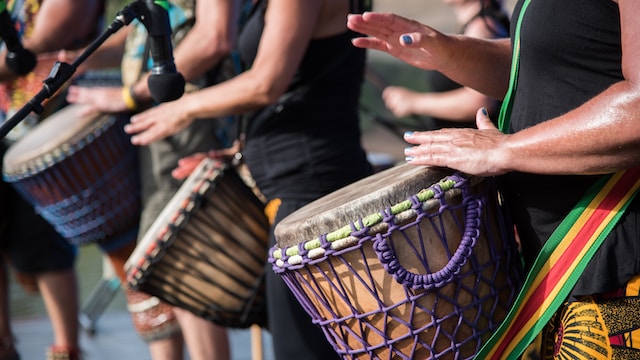For centuries, people around the world have enjoyed the diverse and rich cultural expression of African music. Each country in Africa has its own unique style of music, which has been shaped by its cultural background, history, and traditions. The use of traditional instruments, vocal harmonies, and vibrant rhythms in African music evokes feelings of joy, celebration, and community.
African music has the power to connect people across cultures and speaks to the soul. The traditional rhythms, vocal harmonies, and mesmerizing melodies have influenced a wide range of musical genres worldwide, from jazz and blues to hip-hop and pop.
The djembe, kora, balafon, mbira, and talking drum are some of the traditional instruments used in African music, often handcrafted from natural materials like gourds, wood, and animal skin. This use of traditional instruments makes African music unique and captivating.
African music is also known for its storytelling, which is reflected in its lyrics. These lyrics often narrate stories of African history, culture, and traditions and serve as a means of passing down important messages to future generations.
In African culture, music plays a vital role in various cultural events and ceremonies, including weddings, funerals, rites of passage, and religious gatherings.
In recent years, African music has gained worldwide recognition, with musicians such as Burna Boy, Davido, and Wizkid paving the way for other African musicians to be recognized globally. This has resulted in a new generation of African music that blends traditional rhythms with modern styles.
In conclusion, African music is a unique and captivating expression of rich cultural diversity that has inspired and influenced musicians worldwide. Its use of traditional instruments, vocal harmonies, and vibrant rhythms is what makes it special, and its role in African culture is an essential part of the continent’s history and traditions.

